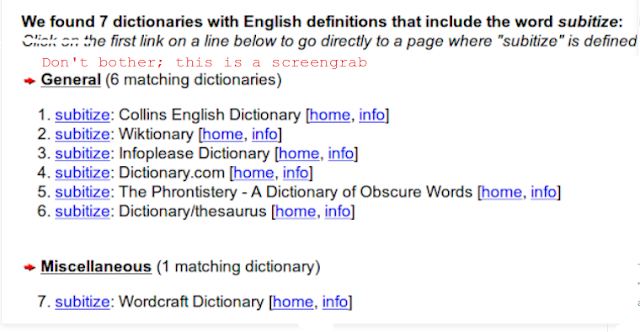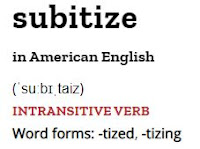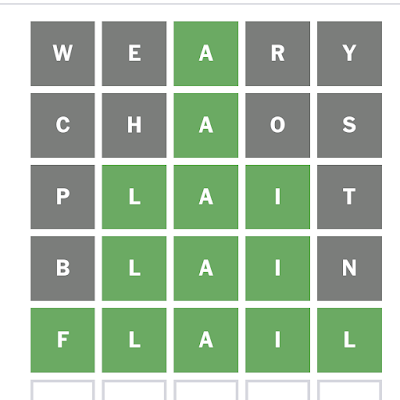The reason for this is, I'm tempted to suggest, plain ignorance. The word has nothing to do with sub (/sʌb/) meaning "under". It's not about estimating numbers under 4 (as they said on the radio just now...
<parenthesis>
[Collins was more generous, allowing estimates of up to 7, but who's counting? {That was a rhetorical question.}]
<parenthesis>
...) But anyone who has a smattering of Italian (subito) or French (subite) or indeed Latin (subitus), or anyone with a passing knowledge of musical tempo markings...
<rant>
Any half-literate speaker of English, for the LOVE OF MIKE! as my mother...<meta-parenthesis>..whom saints preserve [and they better had] would have delicately put it. Why is it elitist to expect a modicum of education on the BBC? But I digress...)
(and she would have known, although like many a woman of her day she left school at 12 – well, her father was a dominie (Scottish for 'teacher') and she was 'only a girl'
</meta-parenthesis>
</rant>
... would guess that it has something to do with doing a thing quickly. A pronunciation with the sound /u:/ in the first syllable would make the word much more readily understandable; but that pronunciation seems to be rare.
A Onelook search for subitize yields this:
Most of these have /ʌ/. Some have no indication of pronunciation, and one (which shall be nameless ) has a meaningless roll-your-own system in which the vowel is anyone's guess. Only Dictionary.com has an unequivocal /u:/. But the Collins entry could suggest what may have been going on in that More or Less programme.
The first version it gives is something that it chooses to call "British English" (for reasons best known to the editors); and for this it gives the pronunciation /'sʌbɪtɑɪz/. But scroll down a bit and you see this:
So possibly the US authors of Making Numbers Count (who were being interviewed) have got the idea that the British way (the obscurantist /ʌ/ pronunciation) is best for this interview (on the World Service of the BBC); and they'll revert to saying /'su:bɪtɑɪz/ once they're back home. I doubt it though. I imagine that the people who coined the word (which is rare, and chiefly used in the field of psychology) knew about the etymology and used the /u:/ pronunciation.
Subsequently it became all the rage in educational circles (My Learning Springboard gives a taste of the breathless earnestness that advocates this "important math skill") and people who thought it had something to do with subtraction did their worst with the pronunciation. But the this-is-a-new-word.-Just-learn-it school, who care nothing for the derivation of words, is in the majority, and I'm afraid the linguistic version of Gresham's Law (which I've mentioned before) has won the day: the meaningless (and misleading) pronunciation has driven out the etymologically sensitive one, but the language as is is what we have to live with. (But I know what I know, and if ever I use the word I shall use the /u:/)
L'Envoi
Amid all the anniversary shenanigans last week (commemorating the Falklands War) I heard this BBC programme. Towards the end a local was saying how she couldn't understand the attitude of Argentinians ...
<inline-ps>
(hostile and belligerent – she used the term 'sabre-rattling')
<inline-ps>
...('It's a little bit exhausting' was the way she put it) as both the Falkland Islanders and the Argentinians were remnants of European colonial powers. This reminded me of a piece I wrote six years ago, when I reflected on the French origins of the name used by the current Argentine Prime Minister, Alberto Fernandes, in a speech marking the 40th anniversary of their defeat a regañadientes (sort of 'with clenched teeth', but with a subtext of entitlement and smouldering resentment):
'Las Malvinas fueron, son, y serán Argentinas'
(The Malvinas were are and will [always] be Argentina's)
But that name represents yet another European power, not English, not Spanish, but French:
In September 1763 Louis-Antoine, Comte de Bougainville ... set sail from St Malo on a voyage of discovery (as many ocean voyages were, at the time). In January 1764 he put in at an unclaimed group of islands, which – like so many explorers before and since – he named in an autocentric way (is that a word? Well it is now.) This is a theme I've visited before, here,)
He called the landing point Port Louis after the French king, and he named the islands after his point de départ: Les Îles Malouines. The islands were those known to Les Rozbifs as .... [but no, I know better than to spoon-feed my readers].
That's all. Now the green blade riseth; biomass reduction is the order of the day.
b
Update: 2022.04.20.11:35 – Added <inline-ps />
Update: 2022.04.20.15:35 – Clarified screengrab (links not live)









